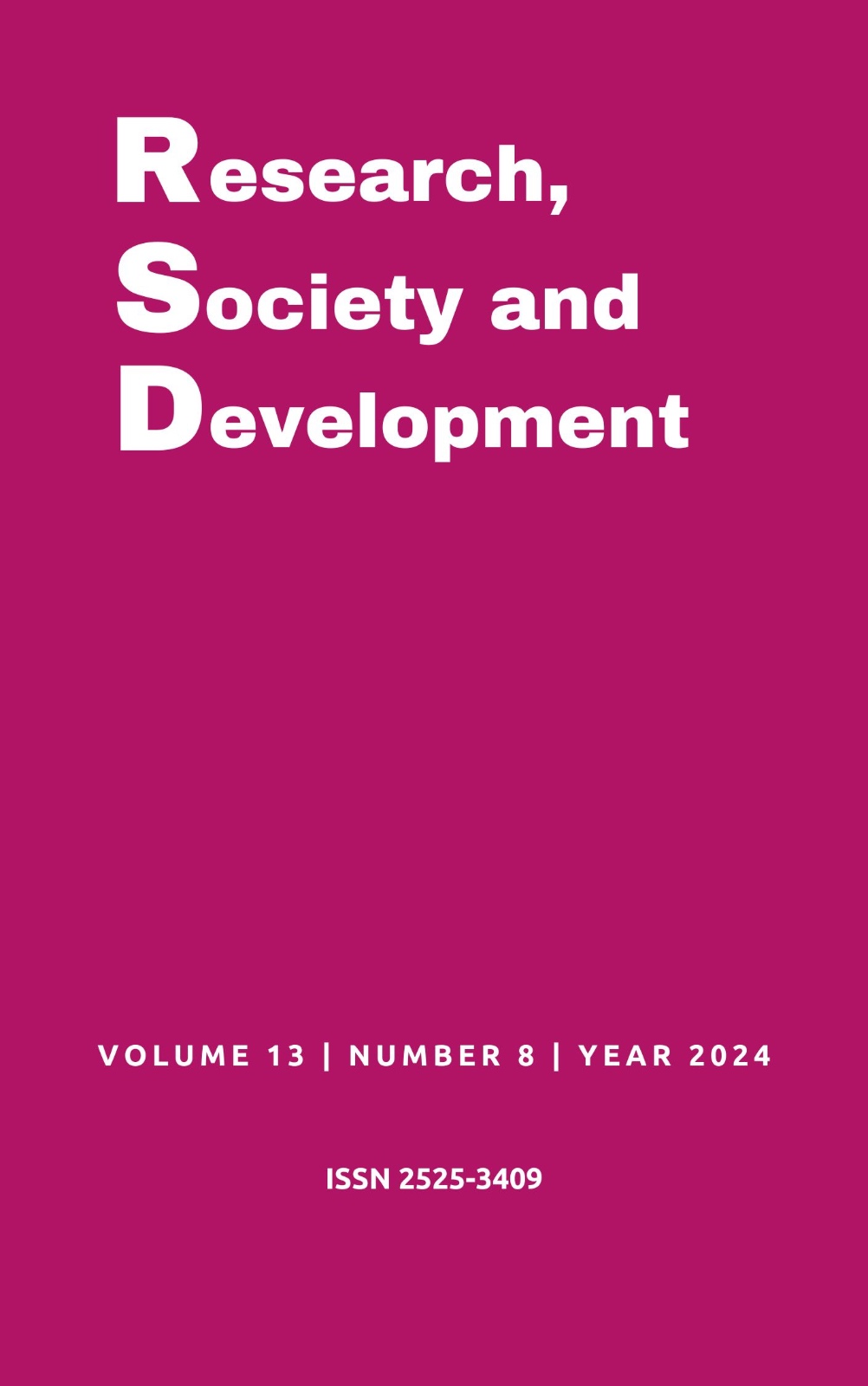Democratic Management and Professional and Technological Education (EPT): the Importance of Spaces for Student Participation in School Management at the Federal Institute of the North of Minas Gerais (IFNMG)
DOI:
https://doi.org/10.33448/rsd-v13i8.46542Keywords:
Integral education, Participation, School management, IFNMG.Abstract
As provided for in the Federal Constitution of 1988 and ratified by the LDB, education is a right for all Brazilian citizens. Based on the educational objectives set out in the legislation, Paulo Freire's theory of liberating education and the project of an integral education, on which the teaching program of the Federal Institutes is based, this article is based on the proposal of an education aimed at critical formation of the student, in which the role of the school is to form autonomous subjects, capable of intervening in reality and not just adapting them for integration into the market. To carry out this study, qualitative documentary research was used on the existing documentation on the phenomenon under study. In this sense, the objective of this study is to highlight the relevance of spaces for student participation in school management at IFNMG for the implementation of democratic and participatory management at school.
References
Aguiar, L. E. V.& Pacheco, E. M.(2017) Os Institutos Federais de Educação, Ciência e Tecnologia como Política Pública. In: As políticas públicas e o papel social dos Institutos Federais de Educação, Ciência e Tecnologia. Série Reflexões. p. 77-116. Editora do IFRN.
Almeida, I. D. (2021). Metodologia do trabalho científico [recurso eletrônico]. Ed. UFPE.
Araújo, R. M. L. & Frigotto, G. (2015). Práticas Pedagógicas e Ensino Integrado. Revista Educação em Questão. 52 (38), 61-80.
Brasil (2006). Orientações curriculares para o ensino médio. Linguagens, códigos e suas tecnologias. v. 1. Brasília: Ministério da Educação, Secretaria de Educação Básica, (239 p.)
Ciavatta, M. (2014) o Ensino Integrado a Politecnia e a Educação Omnilateral. Por que lutamos? Trabalho & Educação. 23(1), 187-205.
Cremosene, D. (2014). Alexis de Tocqueville e os fundamentos cívicos da democracia na América. Teoria & Pesquisa: Revistade Ciência Política. 23(1), 17093. 10.4322/tp.2014.009.https://www.researchgate.net/publication/284369025_Alexis_de_Tocqueville_e_os_fundamentos_civicos_da_democracia_na_America.
Constituição da República Federativa do Brasil. (1998). Senado Federal.
Cunha, M.B. (2005) O novo ensino médio e o exercício da cidadania: controvérsias e desafios. Marília: Universidade Estadual Paulista.
Dourado, L. F.(2012) Gestão em educação escolar. (4a ed.). UFMT / Rede eTec Brasil.
Freire, P. (2005) Pedagogia do Oprimido. Paz e Terra.
Freire, P. (2007) Pedagogia da Esperança: Um reencontro com a Pedagogia do Oprimido. Paz e Terra.
Gil, A. C. (2008) Como elaborar projetos de pesquisa. (4a ed.). Atlas.
Estatuto do IFNMG. (2009). http://www.ifnmg.edu.br/documentosinstitucionais.
Lakatos, E. M. & Marconi, M. A.(2011) Fundamentos de metodologia científica. Atlas.
Lakatos, E. M. &Marconi, M. de A.(2007) Fundamentos de metodologia científica. (6a ed.). Atlas,
Lei nº 9.394, de 20 de dezembro de 1996. (1996) Estabelece as diretrizes e Bases da Educação Nacional. . Diário Oficial da União, seção 1. Presidência da República.
Lei nº 11.892, de 29 de dezembro de 2008. (2008, dezembro 08) Institui a Rede Federal de Educação Profissional, Científica e Tecnológica. Brasília.
Moura, D.H. et al. (2015). Politecnia e Formação Integrada:Confrontos conceituais, projetos políticos e contradições históricas da educação. Revista Brasileira de Educação. 20(63).
Pereira A. S. et al. (2018). Metodologia da pesquisa científica. UFSM.
Prodanov, C. C. & Freitas, E. C. (2013). Metodologia do trabalho Cientifico: Métodos e Técnicas da Pesquisa e do Trabalho Acadêmico. (2ª ed.) Ed. Feevale.
Silva. C. A. G. dos S. (2022) Lei 10639/2003 e a prática pedagógica acerca do ensino das religiões de matrizes africanas no ensino médio integrado campus Montes Claros- MG. Dissertação (mestrado profissional). (137 p.) – IFMNG.
Downloads
Published
Issue
Section
License
Copyright (c) 2024 Carolina Machado e Andrade; Rosana Ferrareto Lourenço Rodrigues; Edson Antunes Quaresma Júnior

This work is licensed under a Creative Commons Attribution 4.0 International License.
Authors who publish with this journal agree to the following terms:
1) Authors retain copyright and grant the journal right of first publication with the work simultaneously licensed under a Creative Commons Attribution License that allows others to share the work with an acknowledgement of the work's authorship and initial publication in this journal.
2) Authors are able to enter into separate, additional contractual arrangements for the non-exclusive distribution of the journal's published version of the work (e.g., post it to an institutional repository or publish it in a book), with an acknowledgement of its initial publication in this journal.
3) Authors are permitted and encouraged to post their work online (e.g., in institutional repositories or on their website) prior to and during the submission process, as it can lead to productive exchanges, as well as earlier and greater citation of published work.


